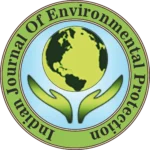IJEP 44(1): 83-89 : Vol. 44 Issue. 1 (January 2024)
D. Divya Prabha*
PSG College of Arts and Science, Department of Management Sciences, Coimbatore – 641 014, Tamil Nadu, India
Abstract
The increasing production and consumption of single-use plastic packaging is a major issue in developing countries. This has been worsened by rapid urbanization and the growth of informal settlements, coupled with inadequate formal refuse collection capacity. The result is illegal dumping sites and inappropriate disposal of plastics, such as street littering, especially in informal settlements, which have been identified as the major sources of plastic pollution. The consequences of plastic pollution are severe, affecting the social-ecological system, including environmental beauty, quality of human life, health, ecological processes, terrestrial wildlife and marine species. As a definite step to curb the littering of single-use plastic, the government of India banned the manufacture and import of single-use plastic items across the country. Following this, many states including Tamil nadu have passed laws to ban single-use plastics. With a stringent approach by imposing a statewide ban, this research paper comprehensively presents the perceptions of the various stakeholders influenced by this policy. The results of the study indicate that even though awareness about the adverse effects of single-use plastics has improved, practical difficulties are encountered by all the stakeholders in the effective implementation of the policy.
Keywords
Single-use plastics, Retailers, Alternate producers, Consumers, Government
References
- Adane, L. and D. Muleta. 2011. Survey on the usage of plastics bags, their disposal and adverse impacts on environment: A case study in Jimma city, southwestern Ethiopia. J. Toxicol. Env. Health Sci., 3:234-248.
- Rajkumar, P. 2015. A study on the plastic waste and environmental degradation. J. Adv. Res., 4(1):9-15.
- PIB Delhi. 2023. Extended producer responsibility guidelines to strengthen circular economy of plastic packaging waste and allow for development of the waste management sector through involvement of formal and informal sector. Public Information Bureau, Ministry of Environment, Forest and Climate Change.
- MoEF. 2022. Beat plastic pollution: Good news from India. Ministry of Environment, Forest and Climate change, Government of India.
- PIB. 2022. Ban on identified single use plastic items from 1st July 2022. Public Information Bureau, Ministry of Environment, Forest and Climate Change.
- Jalil, M.A., M.N. Mian and M.K. Rahman. 2013. Using plastic bags and its damaging impact on environment and agriculture: An alternative proposal. Int. J. Learning Develop., 3(4):1-14.
- Angriani, P., et al. 2020. Ban on plastic bags usage: Consumer perception of single-use plastic bags in traditional market. Adv. Social Sci. Educ. Humanities Res., 525: 226-232. DOI: 10.2991/assehr.k.2 10222.036.
- Cowan, E., et al. 2021. Single-use plastic bans: Exploring stakeholder perspectives on best practices for reducing plastic pollution. Env., 8(8):81. DOI: 10.3390/enivironments 8080081.
- Ali, S., et al. 2022. Strategic analysis of single-use plastic ban policy for environmental sustai-nability: The case of Pakistan. Clean Tech. Env. Policy. 24(1): 843–849.
- Sujatha, P., N.B. Svvetha and S. Gopalakrishnan. 2019. Awareness, acceptance and practice of plastic ban legislation among residents of an urban area in kanchipuram district, Tamil Nadu: A cross sectional study. Int. J. Community Medicine Public Health. 7(1):256–263.
- Danasekaran, R., et al. 2020. Perception regarding hazards of plastics usage and effectiveness of plastic ban in rural Tamil Nadu. National J. Community Medicine. 11(6): 254-257.
- Shende, K.M., A.V. Karmakar and M.H. Pande. 2020. A study on the effects of plastic ban on take away food outlets. Mukt Shabd J., IX (IV): 3197-3204.
- Bharadwaj, B. and R.K. Rai. 2021. Stakeholders perception of used plastics. In Handbook of solid waste management. DOI: 10.1007/978-981-15-7525-954-1.
- Dikgang, J. and M. Visser. 212. Behavioural response to plastic bag legislation in Botswana. South African J. Eco., 80:123-133.
- O’Brien, J. and G. Thondhlana. 2019. Plastic bag use in South Africa: Perceptions, practices and potential intervention strategies. Waste Manage., 84: 320-328.
- Ayeleru, O.O., et al. 2020. Challenges of plastic waste generation and management in sub-Saharan Africa: A review. Waste Manage., 110:24-42.
- Babayemi, J.O., et al. 2019. Ensuring sustainability in plastics use in Africa: Consumption, waste generation and projections. Env. Sci. Europe. 31:20.
- Heidbreder, L.M., et al. 2019. Tackling the plastic problem: A review on perceptions, behaviour and interventions. Sci. Total Env., 668:1077-1093.
- TNPCB. 2018. Ban on use of one time use and throwaway plastic. Tamil Nadu Pollution Control Board. Available at: https://www.tnpcb.gov.in/pdf_2018/G.O_84_Ban plastic 3718.
- Wisely, G. and S. Dass. 2022. Lack of alternatives to single-use plastics dempens efforts in Tamil Nadu. The New Indian Express.
- Devanathan, V. 2022. Deposit ‘EcoBrich’ with Coimbatore Corporation and get 5. The Times of India.
- Sanghi, S. 2008. Use of plastic bags: Factors affecting ecologically oriented behaviour in consumers. Abhigyan. 26(3):34-46.
- Singh, M.K. and S.R. Devi. 2013. Hazards of plastic bags in Dholpur- A small district town of Rajasthan, India. Int. Res. J. Env. Sci., 2:6-10.
- Sung, G.B. 2010. Ban on plastic bags usage- Is it a right move? An empirical study on consumer perception and practice. Master Thesis. Universiti Sains Malaysia.
